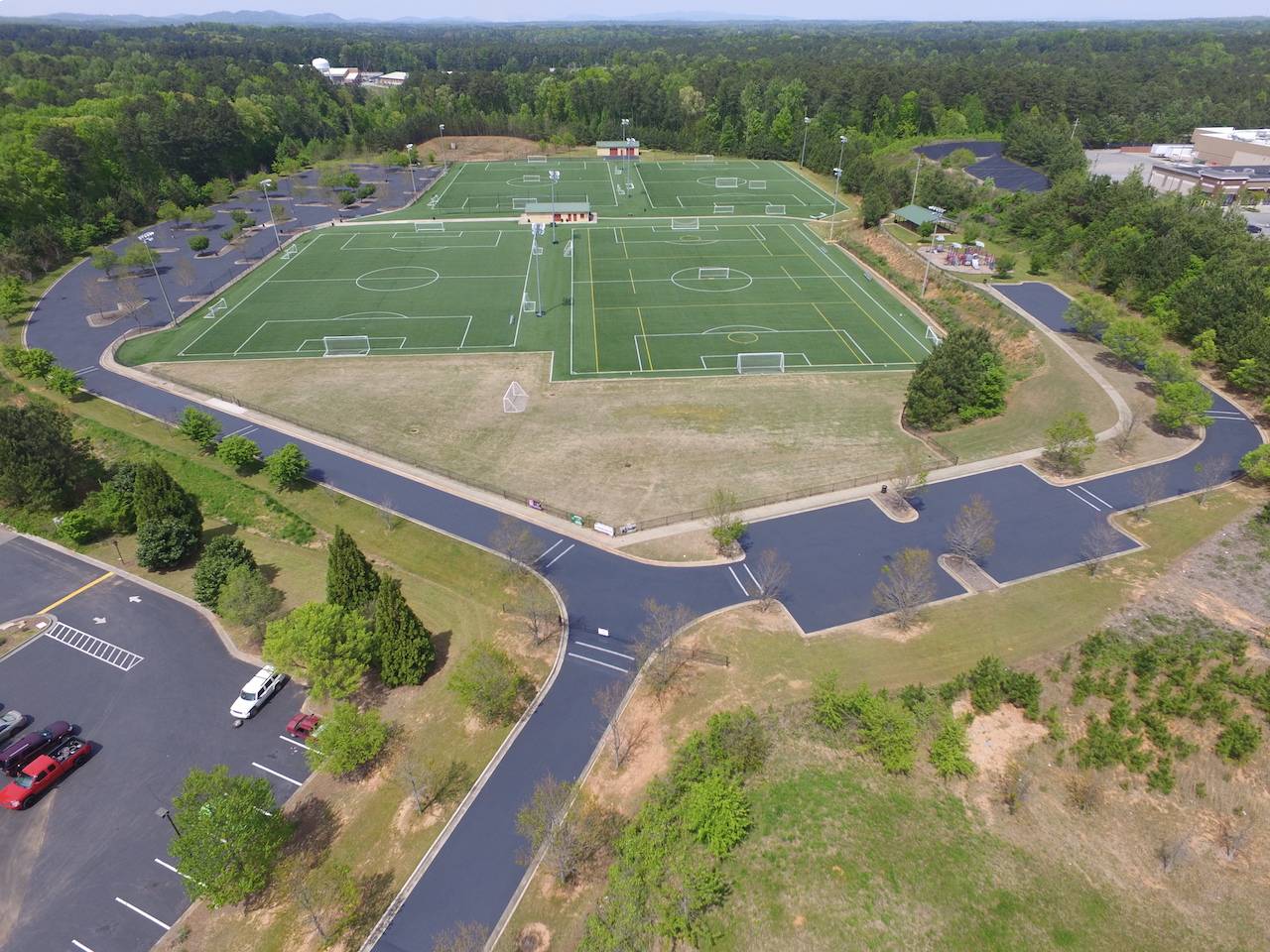If you were to ask a realtor to tell you how much land you need for a new home, you would likely be bombarded with questions. Do you want a large home or a small one? Do you want a minimal lawn, a small backyard garden, or a few acres for farming or pasturing livestock? Do you need additional structures? Do you prefer to build on top of a hill or on level ground? When you call an Atlanta asphalt paving company to ask how thick your asphalt pavement should be, you can expect to be asked a few similar questions.
What Is the Recommended Thickness for Asphalt Paving?
What Type of Asphalt Pavement Do You Need?
As the leading paving material in the United States, asphalt can be found on everything from tennis courts to interstate highways. There is a great deal of difference between building a private blacktop drive for a rural farm and a main artery in a major city. Depending on other factors, the private drive may be fine if it is only three to five inches thick, but the city street may need to be twice as thick.
How Do You Plan to Use Your New Pavement?
The depth requirements for asphalt pavements depend heavily on the types and weights of the expected traffic. For example, a footpath may only need an asphalt thickness of two or three inches, but a parking lot that sees a high volume of fully loaded tractor-trailers may need an asphalt thickness of eight inches or more. If your pavement has additional demands placed upon it, including outbuildings, long-term parking areas, or palletized inventory, expect the recommended thickness to increase.
What Are the Characteristics of the Underlying Soil?
Many people do not realize a link between the pavement’s foundation and the thickness of asphalt required. If the foundation is weak, a paving company cannot remedy the situation by simply increasing the thickness of the asphalt. To ensure that the foundation will be stable and strong, your asphalt company will compact the soil. Rocky and sandy soils usually compact well, but soft soils and high clay content can be a problem. The degree to which the underlying soil can be compacted may have a bearing on the depth of asphalt needed. Your contractor may need to amend the soil or install an aggregate subbase to create a suitable foundation. Either of these steps can affect the asphalt thickness needed to achieve the desired results.
Do You Want a Traditional or Open-Graded Asphalt Mix?
The type of asphalt mix that you want can impact the thickness of the asphalt pavement. It has to do with the aggregates. In a traditional mix, each layer of asphalt needs to be a minimum of 300% thicker than the maximum aggregate size. However, in an open-graded mix, the maximum aggregate size can be as much as 80% of the thickness of the asphalt layer. Thus, the type of mix can have a direct impact on the total thickness of the pavement.
Contact Us for More Information About Asphalt Paving Thicknesses
The Surface Masters is a well-respected Atlanta paving company with a reputation for consistently providing high-caliber results at competitive prices. Our paving services include asphalt paving, asphalt overlays, parking lot striping, asphalt sealcoating, tennis court resurfacing, concrete installation and repair, and asphalt crack sealing. If you want to receive a free quote, fill out the request form to send us the details. If you prefer to call us, our number is 770-250-6392.


